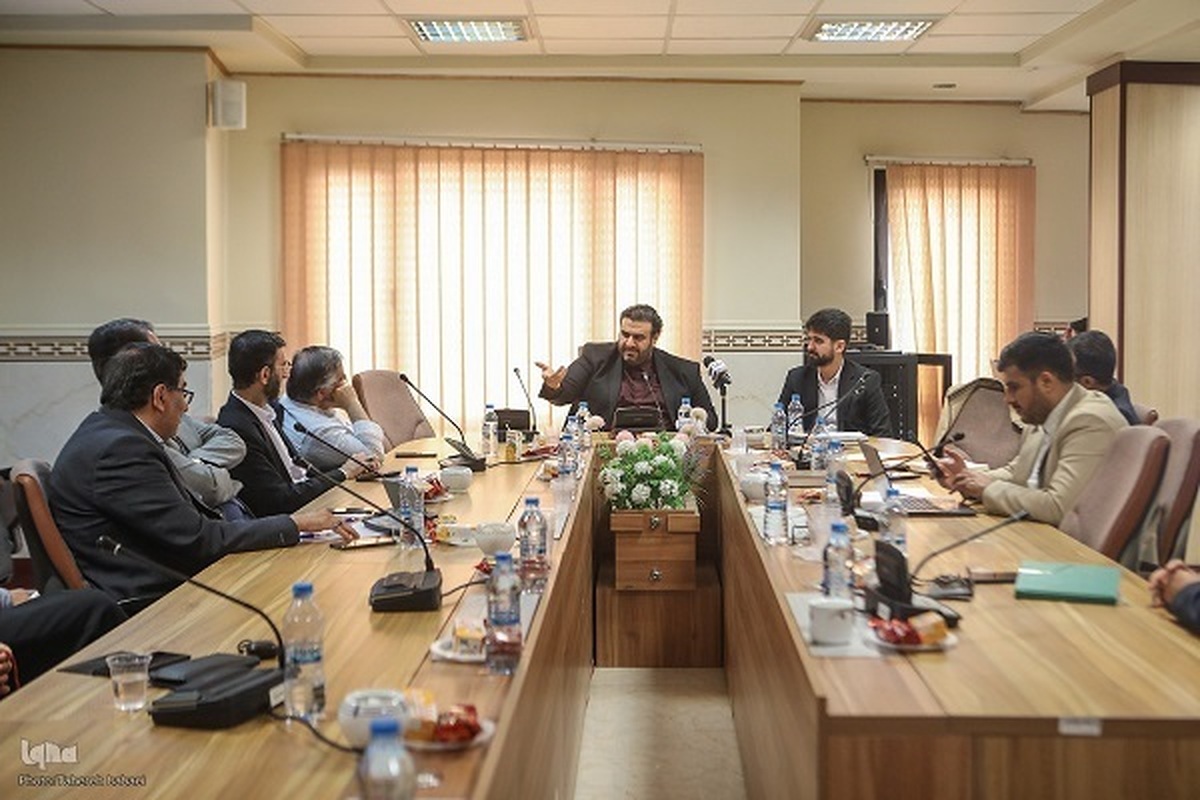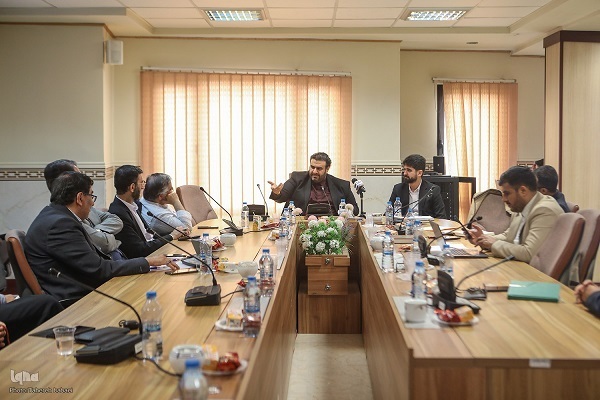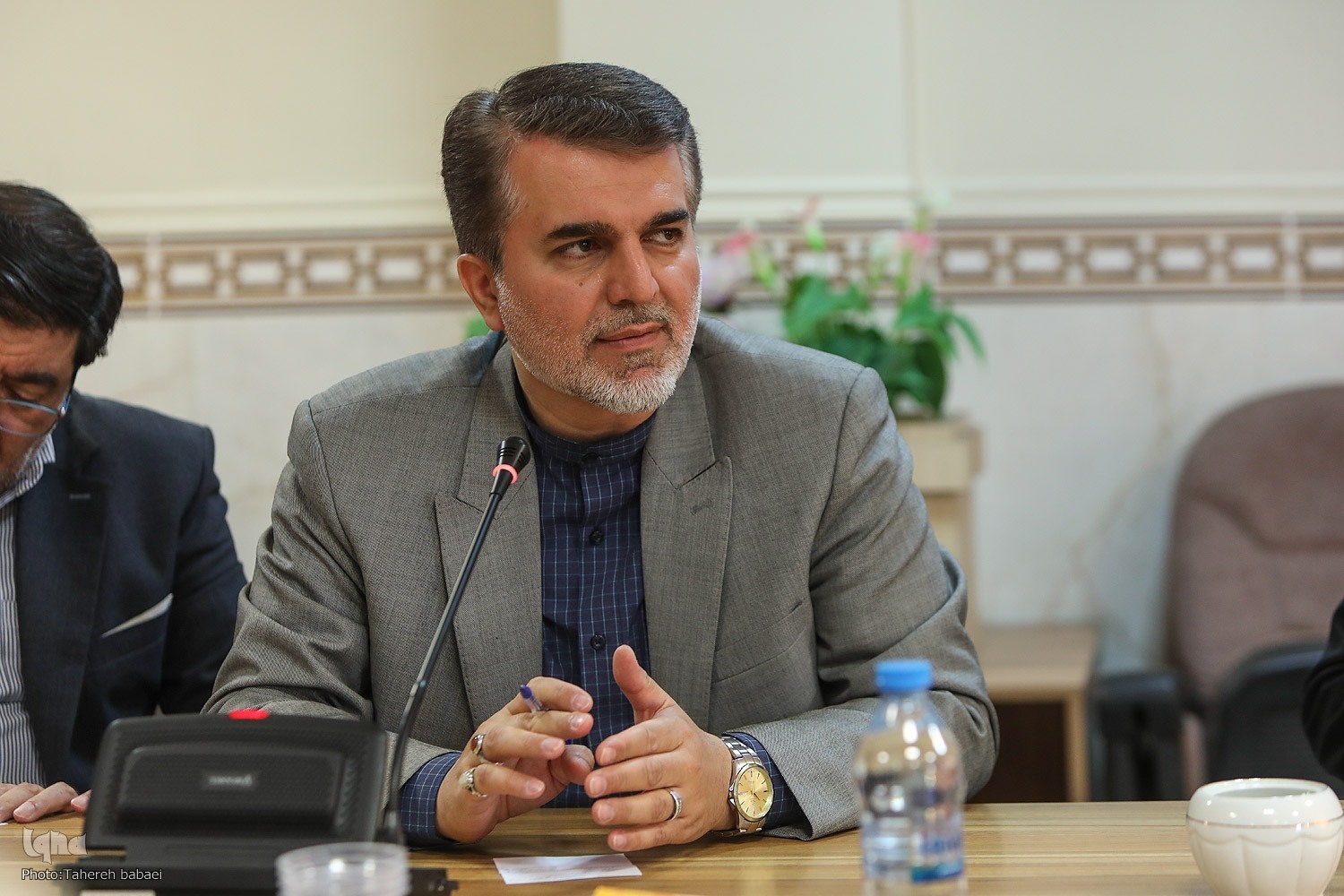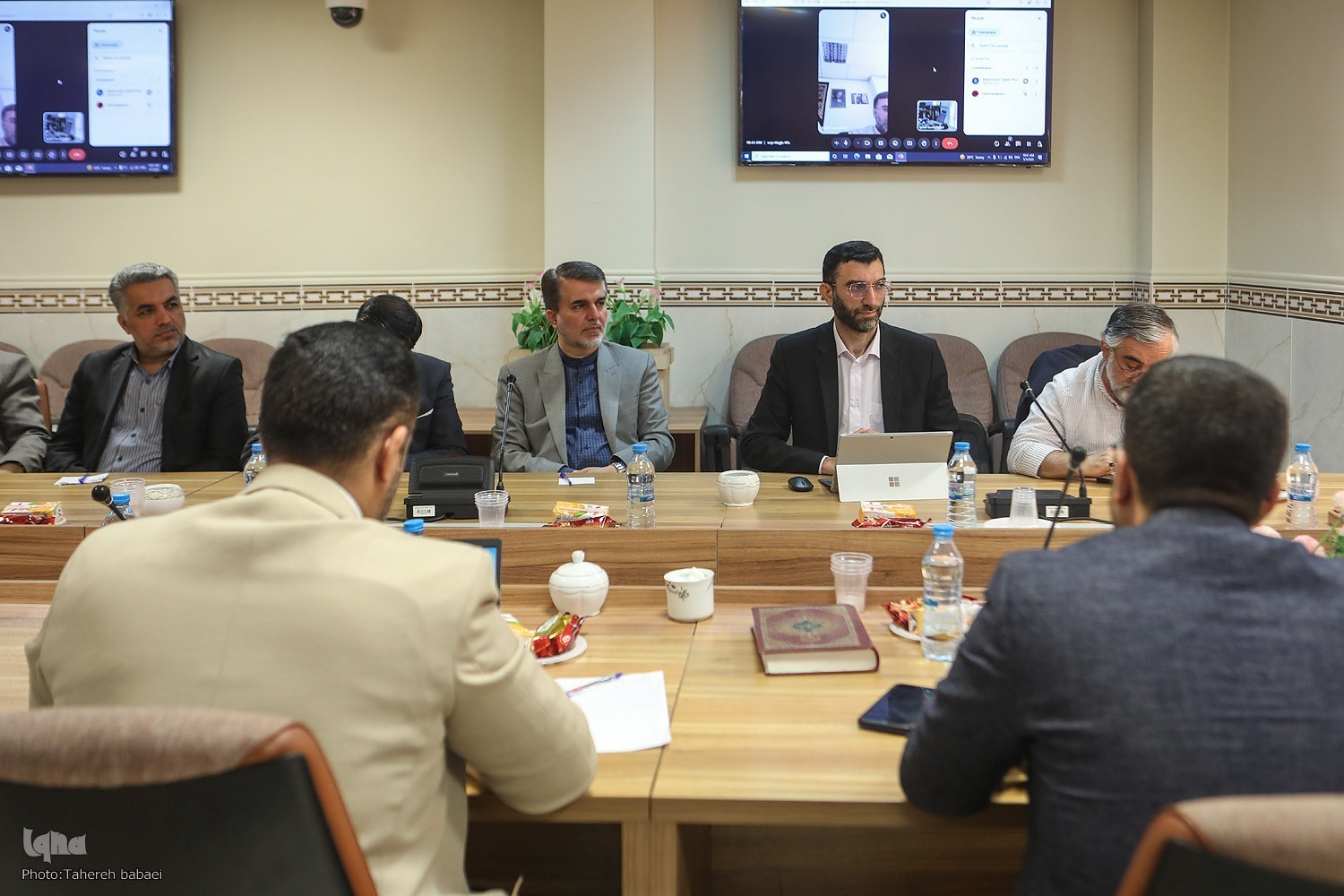Meeting Stresses Establishment of Permanent Secretariat for Iran Int’l Quran Contest


A number of Quranic officials, managers and activists took part in the gathering.
Presenting a proposal to register the international Quranic event in UNESCO as a spiritual heritage and the establishment of a permanent secretariat of the competition was among the topics emphasized at the meeting.
It began with recitation of verses from the Holy Quran by Vahid Khazaei, followed by a report presented by Mohammad Shakiba, the deputy head of the Awqaf and Charity Affairs Organization’s Quranic Affairs Center, about the 41st edition of the competition, which was held last year.
He noted that 104 countries introduced their representatives in the contest and after the preliminary selection, Quran reciters and memorizers from 28 countries made it to the finals.
He also said invitations have been prepared to be sent to different countries for this year’s edition.
Mohammad Taqi Mirzajani, the research and planning deputy of the Supreme Council of the Quran, talked about three dimensions of the competition, namely the contestants, the panels of judges, and the audience.

He said there should be specific plans for each of these groups.
Referring to the history of more than 40 editions of the international Quranic event, Mirzajani said, “If we had maintained (contact with) at least a percentage of participants during different editions, we would have a large number of memorizers and reciters, which could have been the basis for many programs and cultural activities. As for the second group, the judges and the Quran experts (serving in the panels of judges), we see a lot of talented and influential people in the competition every year, and there should be a program for them. There are also activities that can be effective (in promoting Quranic activities) for the audience.”
Khandaqabadi, a representative from the international deputy of the office of the Leader of the Islamic Revolution was another speaker at the meeting.
He said the issue of continued communication with participants and referees is very important.
If the organizers of the competition establish a permanent secretariat, this secretariat will provide a platform for communication and intellectual nourishment of the participants, he stated.

Next, Seyed Mohammad Reza Qassemtabar, director of the Thaqalayn TV, stressed the importance of Quranic diplomacy.
“We have to answer the question, what should be done so that after returning to their country, the participants in the competitions can at least strengthen their local communities (in Quranic areas).”
Jalil Bayt Mash’ali, the head of the Iranian Academics’ Quranic Organization, also addressed the gathering, highlighting the need for paying more attention to the issue of social responsibility in the competition.
Then, Mojgan Khanbaba, a veteran Quran activist, called for registering the competition in the UNESCO as a spiritual heritage.
The International Holy Quran Competition of the Islamic Republic of Iran is annually organized by the country’s Awqaf and Charity Affairs Organization.
It aims to promote the Quranic culture and values among Muslims and showcase the talents of Quran reciters and memorizers.
4280494



